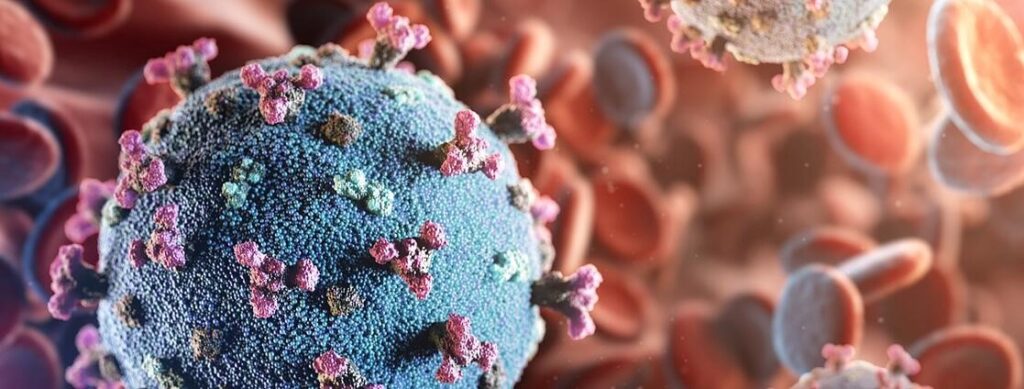
How the Delta mutations in SARS-CoV-2 impact its transmissibility, disease severity and immune evasiveness
The Delta variant hosts multiple mutations in the S1 subunit, including three in the RBD that seem to improve the RBD’s ability to bind to ACE2 and evade the immune system. Studies report that the variant replicates faster and at higher levels, explaining why it has a much high transmissibility than other variants. There is still debate as to whether Delta causes more severe illness than other variants for the unvaccinated. U.K. data has suggested Delta is more likely to lead to hospitalization than Alpha, but that could be due to increased transmissibility rather than it being more pathogenic. However, in a study released in Nature, it was found that antibodies from unvaccinated people who had survived an infection with COVID-19 did not neutralize Delta very well, demonstrating the variant’s immune evasiveness property.
Diagnostic testing remains a critical component in managing the spread of COVID-19. Since the start of the pandemic, Meridian has supported the diagnostic industry with antigens, antibodies, and molecular enzymes suitable for developing COVID-19 assays.
Meridian’s antibodies are highly sensitive for the detection of SARS-CoV-2 and they are ideal for developing reliable and sensitive rapid antigen assays for the detection of active COVID-19 infections. Meridian has a novel antibody pair to trimeric SARS-CoV-2 S1 protein that is capable of recognizing the spike 1 (S1) protein in saliva samples regardless of its confirmation state (e.g. “up” or “down”). The antibodies bind to a linear epitope on the S1 protein that is distinct from the RBD protein which has epitopes that are conformation-dependent. Recent studies have shown that linear epitopes on the S1 protein are able elicit neutralizing antibodies in COVID-19 patients and have potent antigenicity, making them prime targets for diagnostic, therapeutic and vaccine targets. Li, Y., Lai, D., Zhang, H. et al. Linear epitopes of SARS-CoV-2 spike protein elicit neutralizing antibodies in COVID-19 patients. Cell Mol Immunol (2020).
MAbs to Nucleocapsid Protein
Antibodies work as a pair and are suitable for use in ELISA, Lateral Flow and Western Blot. They are capable of detects the SARS-CoV-2 variant strains Alpha B.1.1.7, Beta B.1.351, Gamma P.1/P.2 and Delta B.1.617.2. They do not cross react with any other coronavirus except SARS-CoV.
- Nucleocapsid Protein (Capture MAb)
- Nucleocapsid Protein (Detection MAb)
- Nucleocapsid Protein (Alternate Detection MAb)
MAbs to Trimeric Spike Protein
Antibodies work as a pair and can detect SARS-CoV-2 trimeric spike protein down to ~300 pg/mL by using TMB substrate in ELISA assay. They bind to a linear epitope and are not conformation dependent. They are suitable for ELISA, Lateral Flow and Western Blot applications and they can be used as a positive control antibody in neutralizing assays with Meridian’s SARS-CoV-2 Spike mutant recombinant antigens.
- Trimeric Spike Protein – Linear Epitope (Capture MAb)
- Trimeric Spike Protein – Linear Epitope (Detection MAb)
- Trimeric Spike Protein – Linear Epitope (Detection MAb)
Meridian’s portfolio of RT-qPCR master mixes have been designed to simplify the development of molecular assays and enable new features such as extraction-free amplification. Each master mix contains a hot-start polymerase, dNTPs, buffer and other components optimized for each particular application (e.g. lyophilization). Only primers and probes are required to complete the assay formula.
By using a master mix in which the upstream formulation chemistry has already been refined for superior performance under fast or challenging cycling conditions, assay development can be concentrated to other elements of the assay design. Important features for successful next generation molecular assays include earlier detection, simplified workflow format and shorter time to results.
RT-qPCR Master Mixes
- NEW – Lyo-Ready™ RT LAMP 1-Step Mix
- NEW – Air-Dryable™ Direct DNA qPCR Blood Mix
- NEW – Air-Dryable™ Direct RNA/DNA qPCR Saliva
- Inhibitor-Tolerant RT-qPCR Mix
- Air-Dryable RT-qPCR Mix
- Fast 1-Step RT-qPCR
- Lyo-Ready 1-Step RT-qPCR Mix
VLP-RNA Extraction Controls
VLP-RNA Extraction Controls offer a simple and effective way to reduce false negative results in RT-qPCR assays. The controls are composed of virus-like particle (VLP) shells packaged with a defined number of copies of target RNA molecules that contain no known homology (the RNA sequence can also be customized up to 1000nt). By closely mimicking a diagnostic sample, these controls enable labs to test the entire process of an RT-qPCR assay including lysis/ extraction, reverse transcription and amplification.
- VLP-RNA Extraction Control
- VLP-RNA Extraction Control Orange
- VLP-RNA Extraction Control Red

